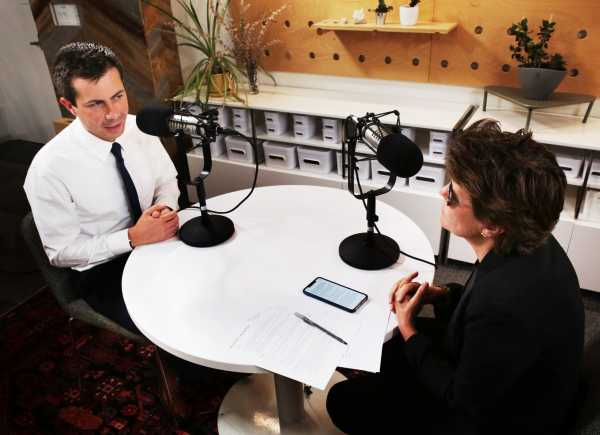
This story is part of a group of stories called

Uncovering and explaining how our digital world is changing — and changing us.
If you live in the European Union, you can ask platforms such as Google to remove certain search results about you or a close associate. If you live in the United States, you cannot.
2020 presidential candidate Pete Buttigieg wants to change that.
On an upcoming episode of our podcast Recode Decode, which will be released on Monday, July 15, Buttigieg told Recode’s Kara Swisher that he supports a national “right to be forgotten” from the internet.
“Some of these things are fierce technical, as well as legal, as well as constitutional problems,” Buttigieg, the mayor of South Bend, Indiana, said. “But at the end of the day, we need to have some level of relationship to the value that is created in our name.”
“We’ll have to decide the difference between a piece of data that I hand to a company to use and make money off of, and something that is published,” he said, adding, “As we figure out how these rights are going to work, we need a national framework to do it, and we need a national debate about it.”
Here’s how Vox’s Emily Stewart defined the “right to be forgotten” in 2018, when it was embedded in Europe’s General Data Protection Regulation, or GDPR:
Should Buttigieg get his wish for a “national debate” about an American version of this right, he may be challenged by freedom of expression advocates who don’t want the government testing the limits of the First Amendment. However, he told Swisher, the big internet platforms are already regulating speech in a vacuum left by the government.
“A lot of these things have arisen because the policy world didn’t figure it out,” Buttigieg told Swisher on the upcoming podcast. “I don’t think a lot of the tech companies want to be adjudicating what hate speech is … there’s obviously an extent to which it can’t be done, and that’s the problem with the First Amendment and drawing these lines.”
“Every time a company the size of YouTube or Amazon or Google or Facebook makes a corporate policy decision, what they’re really doing is making a public policy decision,” he added. “But they have none of the apparatus to make public policy, and I don’t think they want to, to some extent.”
To make sure you don’t miss the full interview when it comes out on Monday, subscribe to Recode Decode today. You can do that wherever you get your podcasts, including Apple Podcasts, Spotify, Google Podcasts, and TuneIn.
Recode and Vox have joined forces to uncover and explain how our digital world is changing — and changing us. Subscribe to Recode podcasts to hear Kara Swisher and Peter Kafka lead the tough conversations the technology industry needs today.
Sourse: vox.com






